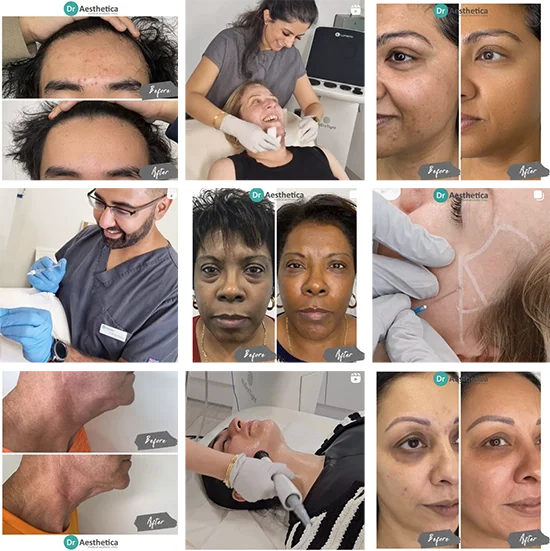Discover the pros and cons of Botox compared to alternative treatments for teeth grinding. This comprehensive article explores the effectiveness, safety, and cost of each option. Find out which treatment option suits you best and say goodbye to teeth grinding discomfort.
Introduction: Understanding Teeth Grinding
Teeth grinding, scientifically known as bruxism, is a condition that affects many individuals, causing them to clench or grind their teeth involuntarily. It often occurs during sleep, but some people may also experience it during waking hours. Teeth grinding can lead to various problems, including worn tooth enamel, jaw pain, headaches, and even damage to dental restorations. To address this issue, several treatment options are available, including Botox and alternative treatments. In this article, we will delve into the comparison between Botox and alternative treatments for teeth grinding, examining their advantages, drawbacks, and effectiveness.
Botox: A Closer Look - What is Botox and How Does it Work?
Botox, short for botulinum toxin, is a purified protein that is commonly used for cosmetic and therapeutic purposes. It works by temporarily blocking the nerve signals that cause muscle contractions, leading to relaxation of the treated muscles. When Botox is used for teeth grinding, it targets the muscles involved in jaw movement, reducing the intensity of grinding and preventing further damage to the teeth.
Pros of Botox for Teeth Grinding
- Long-lasting effects: Botox injections typically provide relief from teeth grinding for three to six months, making it a convenient option for individuals seeking long-term solutions.
- Non-invasive: Botox treatment involves a series of small injections, which are generally well-tolerated and do not require any surgical procedures.
- Targeted approach: Botox specifically targets the muscles responsible for teeth grinding, offering precise relief without affecting other muscle groups.
- Quick results: Many individuals notice a reduction in teeth grinding within a few days after receiving Botox injections.
Cons of Botox for Teeth Grinding
- Temporary solution: Botox provides temporary relief, which means that regular injections are necessary to maintain the results.
- Potential side effects: Although rare, some individuals may experience temporary side effects such as muscle weakness or difficulty chewing immediately after the injections.
- Cost: Botox treatment can be expensive, especially considering that multiple sessions may be required over time.
- Limited availability: Botox injections for teeth grinding may not be readily available in all dental or medical clinics.
Alternative Treatments: Exploring Options
While Botox is an effective treatment option for teeth grinding, there are alternative approaches worth considering. These alternatives focus on addressing the underlying causes of teeth grinding and providing relief in different ways.
This article was read and reviewed by the face of DR Aesthetica himself - DR Baldeep Farmah.
Dental Night Guards
Dental night guards, also known as occlusal splints or mouthguards, are custom-made devices that fit over the teeth, creating a barrier between the upper and lower jaws. They protect the teeth from grinding against each other and alleviate the associated symptoms.
Pros of Dental Night Guards
- Non-invasive and reversible: Dental night guards do not require any surgical procedures and can be easily removed when not needed.
- Customized fit: Each dental night guard is tailor-made to fit an individual's unique dental structure, ensuring maximum comfort and effectiveness.
- Durability: Well-made night guards can last for a long time with proper care, making them a cost-effective option in the long run.
Cons of Dental Night Guards
- Initial discomfort: It may take a few nights for users to get used to wearing a dental night guard, but this usually subsides over time.
- Regular maintenance: Night guards need to be cleaned and maintained properly to prevent bacterial growth and prolong their lifespan.
- Inhibition of speech: Some individuals may experience temporary changes in speech patterns or excess saliva production initially.

Stress Management Techniques
Stress and anxiety are common triggers for teeth grinding. Therefore, stress management techniques can help reduce the frequency and intensity of teeth grinding episodes.

Pros of Stress Management Techniques
1. Holistic approach: Stress management techniques promote overall well-being and can positively impact various aspects of life beyond teeth grinding.
2. Cost-effective: Stress management techniques often involve self-help practices or professional guidance, making them affordable options.
Cons of Stress Management Techniques
1. Time commitment: Implementing stress management techniques requires consistent effort and time, which may not be feasible for everyone.
2. Individual effectiveness: The effectiveness of stress management techniques can vary from person to person, and finding the most suitable approach may involve trial and error.
FAQs about Botox vs. Alternative Treatments for Teeth Grinding
1. Is Botox a permanent solution for teeth grinding?
- No, Botox provides temporary relief and requires regular injections to maintain its effects.
2. Are dental night guards uncomfortable to wear?
- While dental night guards may feel uncomfortable initially, most individuals adjust to wearing them within a few nights.
3. Can stress management techniques completely eliminate teeth grinding?
- Stress management techniques can significantly reduce teeth grinding episodes, but their effectiveness varies from person to person.
4. Is Botox covered by insurance for teeth grinding treatment?
- Insurance coverage for Botox as a treatment for teeth grinding may vary depending on the insurance provider and policy.
5. Can alternative treatments be used in conjunction with Botox?
- Yes, dental night guards and stress management techniques can be complementary to Botox treatment, providing additional support in managing teeth grinding.
6. How soon can I expect results from Botox injections?
- Many individuals notice a reduction in teeth grinding within a few days after receiving Botox injections.
Conclusion: Choosing the Right Treatment for Teeth Grinding
When considering treatment options for teeth grinding, it is essential to evaluate the pros and cons of each approach. Botox offers a targeted and effective solution with long-lasting results, while alternative treatments like dental night guards and stress management techniques provide alternative avenues to address teeth grinding. Ultimately, the choice between Botox and alternative treatments depends on individual preferences, budget, and severity of symptoms. Consultation with a healthcare professional or dentist can help determine the most suitable treatment plan for your specific needs.
Are you suffering with Bruxism. Do you Want a treatment that:
- That lasts approximately 6 months?
- Only requires 24 hours of downtime
- Is so painless that it requires no anaesthetic
- Displays results by 4 weeks
Then a Botox treatment may be perfect for you! View more information on a Botox treatment here:


